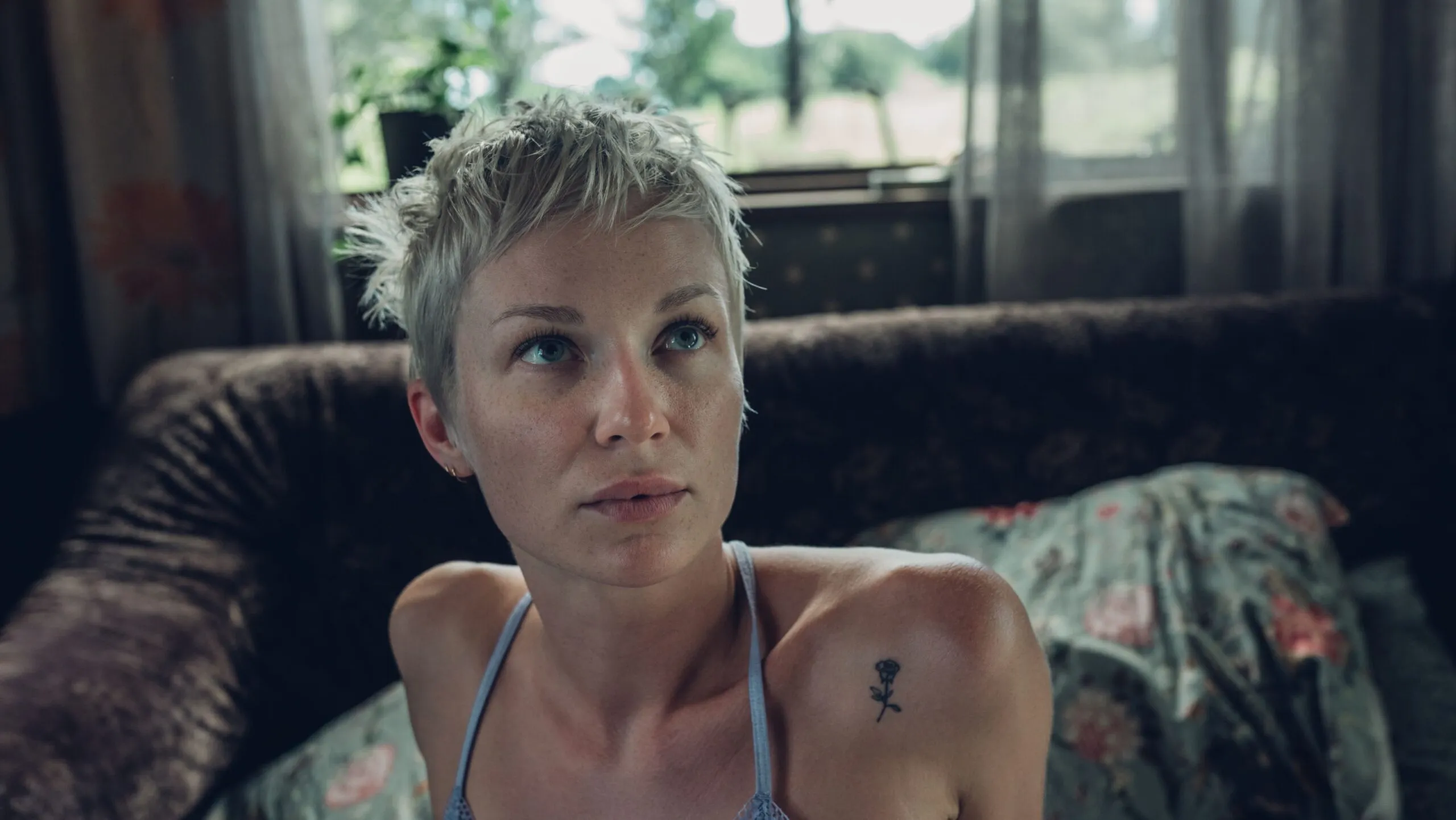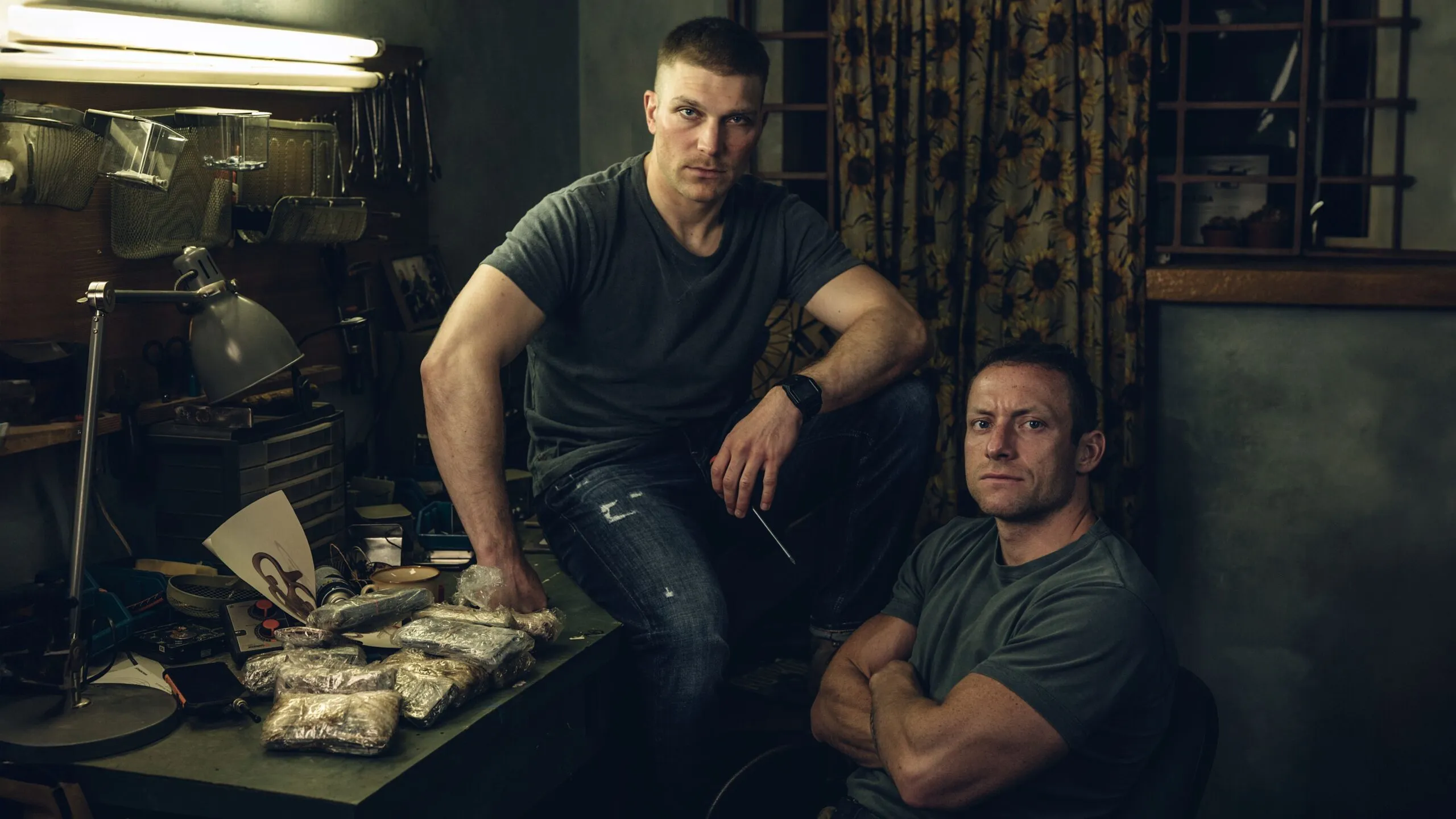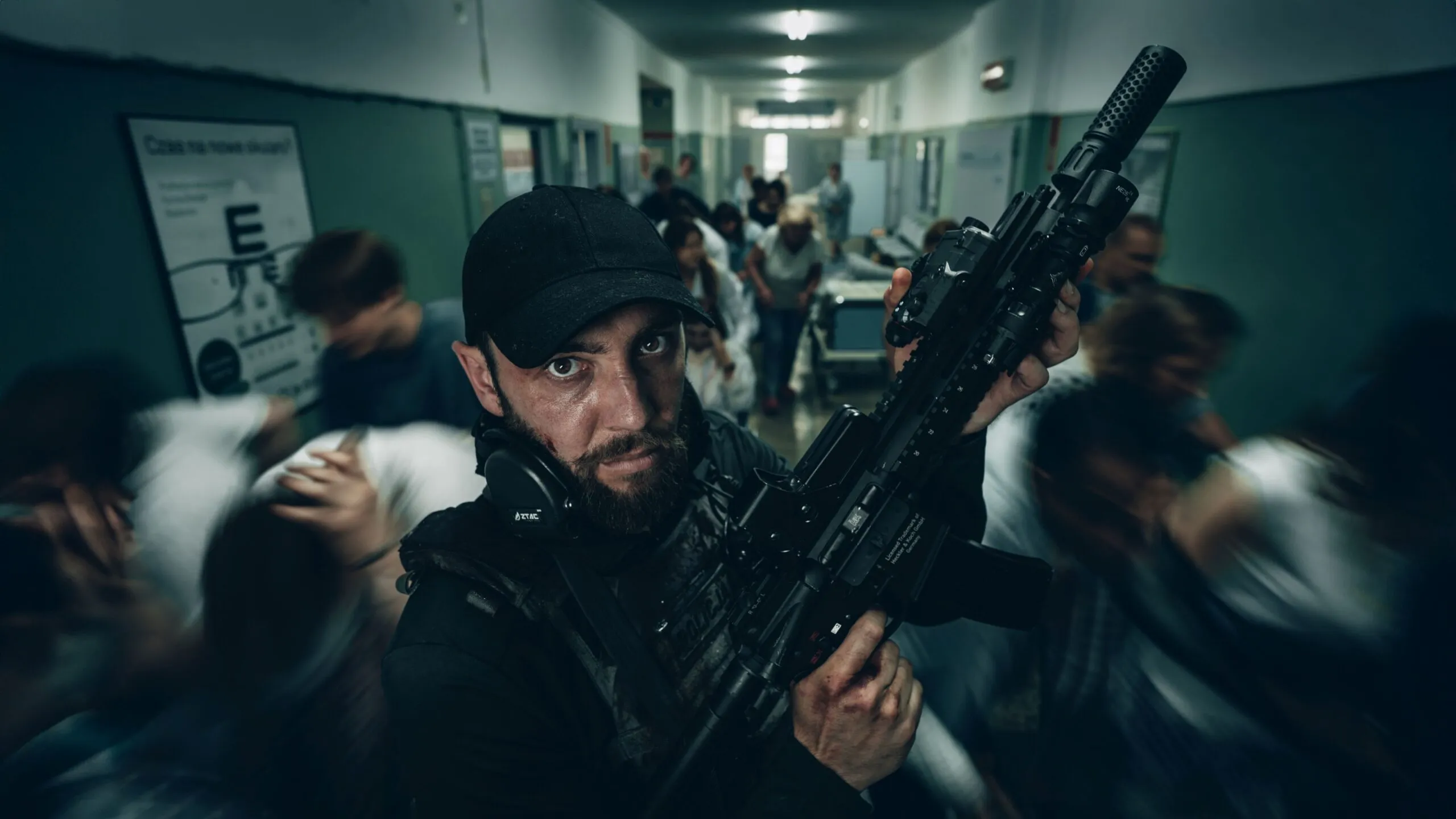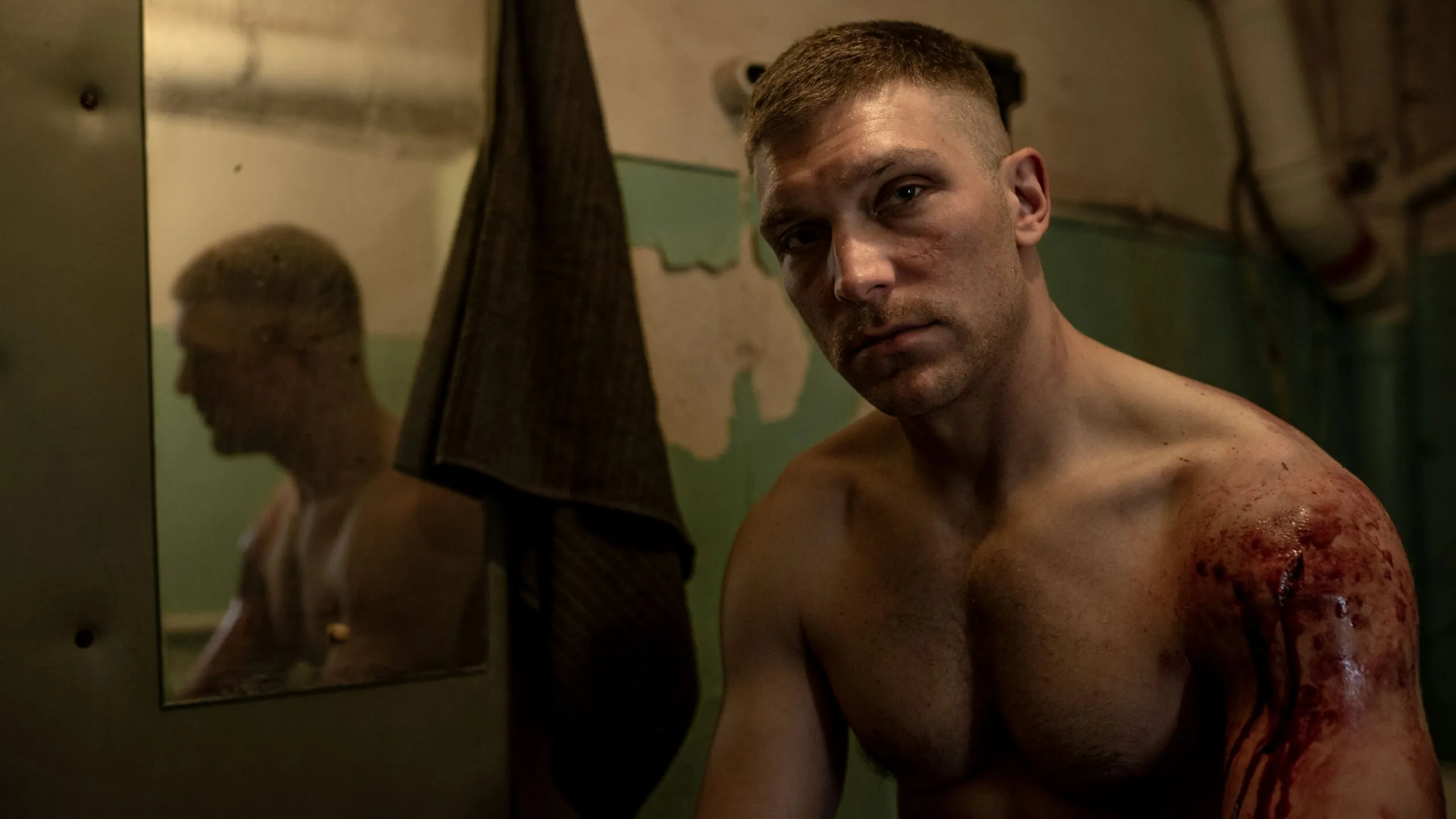In the grim setting of “Go Ahead, Brother,” we meet Oskar Gwiazda, a former police officer trying to work through the chaos in his life after a traumatic event. His character embodies a deep battle relatable to modern societal problems, especially mental health and familial duty.
The narrative doesn’t hold back, sending Oskar into a downward spiral that is sparked by his father’s suicide, a moving event that is highlighted by the heavy weight of debt that Oskar and his sister Marta are now dealing with. This first act sets the stage for a personal tragedy and serves as a microcosm of the larger societal problems of despair and economic unpredictability that many people face today.
As the story goes on, Oskar’s shift from being a police officer to working in the criminal underworld is both interesting and scary. His descent into crime reflects a desperate attempt at survival, blurring the lines between right and wrong in a world that doesn’t offer much hope. The dynamics between Oskar, Marta, and her husband Sylwek show how outside forces can exacerbate the cracks in familial relationships. Traditional masculine expectations, where vulnerability is often hidden by violence and stoicism, are amply demonstrated by Oskar’s determination to handle the debt his father left behind.
The complex interweaving of Oskar’s personal and societal narratives prompts reflection on the consequences of systemic failures and the implications of his choices. In a time when mental health and economic despair are becoming more prominent in public discourse, the series challenges us to confront uncomfortable truths about the human experience as he navigates this dangerous landscape.
Complex Characters in Crisis: A Reflection of Contemporary Struggles
The unhappy main character of the series, Oskar Gwiazda, represents the mental turmoil many people face in today’s high-pressure world. His story is more than just a descent into crime; it shows in vivid detail how a man deals with panic attacks, guilt, and familial responsibilities.
By showing how trauma can change a person’s moral compass, Oskar’s mental battles are shown in a very real way. The series shows what drives him by showing how each bad choice comes from a desperate need to take control amid chaos. Even though he engages in increasingly dubious actions, this character’s flaws are made clear, allowing viewers to feel sorry for him.
As the tension rises with each episode, reflecting Oskar’s deteriorating mental state, the narrative’s pacing highlights his moral decline. This slow burn serves as a commentary on how societal expectations frequently put people into unfavorable circumstances, where their choices reflect not only their flaws but also problems with the system. Oskar embodies the modern man’s fight against societal norms that dictate success and masculinity. He is torn between the duties of family and the alluring promise of quick survival in a corrupt world.
The characters of Marta and Sylwek, each offering a different perspective on familial loyalty and moral conflict, support Oskar. As Oskar’s sister, Marta is often seen as the emotional center, but she is also caught in the web of their father’s influence. The tension in her relationship with Oskar highlights the strain that financial problems can put on familial bonds. While Oskar’s choices push him deeper into darkness, Marta’s efforts to stay stable show the emotional work that accompanies such crises that are often not seen.
Sylwek presents an interesting contrast as Oskar’s brother-in-law. He embodies the internal struggle between loyalty to Oskar and the moral consequences of engaging in illegal activity. His character serves as a warning that the fight between right and wrong is still very personal, even in the face of extreme pressure. The series skillfully challenges conventional ideas of masculinity and heroism in this way, showing that real strength often lies in vulnerability and the guts to ask for help rather than using violence.
“Go Ahead, Brother” engages in a larger societal conversation about mental health, familial duty, and the moral complexities of surviving in a challenging world through these characters in addition to creating an engaging character. As Oskar and his family deal with their problems, viewers are left to think about how complicated human relationships can be in times of crisis, making the series a moving reflection on modern life.
The Weight of Guilt: Navigating Family Dynamics in “Go Ahead, Brother”
A profound examination of guilt and responsibility, intricately woven into the fabric of familial duties, lies at the center of “Go Ahead, Brother.” The story of Oskar’s trip serves as a powerful reminder of the high costs of loyalty to one’s family, especially when emotional and financial problems test those ties.
The series shows how guilt can be both a personal problem and a societal expectation that forces people to take on burdensome duties. The fact that familial love can be both a haven and a prison is brought to light by Oskar’s internal conflict, which drives him toward ethically dubious choices to honor his father’s memory.
The dynamics within Oskar’s family get more complicated as he navigates the dangerous waters of crime and survival. A delicate waltz between loyalty and treachery affects every choice Oskar, Marta, and Sylwek make. The show does a great job of showing how familial ties can be both helpful and frustrating.
They can make you feel obligated and angry at the same time. As Marta deals with the weight of her brother’s choices and the haunting legacy of their father, her efforts to stabilize their collapsing world reveal her frustrations. The tension is evident and serves as a sharp critique of the demands placed on family members, especially during financial and emotional stress.
“Go Ahead, Brother” engages with modern conversations about mental health and family dynamics in the larger cultural context, making it especially pertinent in our time. It challenges traditional narratives, which frequently highlight lone heroes, and instead presents a nuanced view of collective familial struggle. The show’s study of these themes marks a shift in storytelling, putting the complexities of human relationships front and center and encouraging viewers to consider their familial ties and the burdens they carry that are frequently unspoken.
The Rhythm of Despair: Pacing and Narrative Structure in “Go Ahead, Brother”
In “Go Ahead, Brother,” the pacing changes between slow-building tension and fast-paced action, making a lively rhythm that keeps the audience interested and challenges them. With moments of reflection interspersed with abrupt bursts of chaos, this deliberate tempo reflects the protagonist Oskar’s psychological state.
This kind of structure is typical of new trends in TV, especially now that streaming is common. Creators are trying out more and more narrative structures that don’t follow the rules of standard episodic television. Before launching viewers into the fast-paced world of crime that Oskar navigates, the slow-burning tension allows for greater character exploration.
This push and pull, however, can also cause moments of narrative dissonance. Although the action scenes are unquestionably exciting, they can sometimes feel disconnected from the slower-paced ones, which could leave viewers with a sense of shock. Does the show successfully maintain clarity in its storytelling when it shifts from quiet reflection to frenetic violence? This inconsistency begs the question of narrative coherence. The plot can sometimes veer off course, making viewers wonder if the pacing serves to enhance the story or takes away from its overall effect.
The show’s structure also reflects larger societal discussions about the speed of life in modern society, where crisis moments frequently happen quickly against a backdrop of underlying tension. “Go Ahead, Brother” engages viewers while encouraging introspection about the nature of crisis and survival in an increasingly chaotic world by contrasting quieter character-driven moments with urgent action.
The series’ ambition is evident in the fluidity of its pacing, which suggests a possible shift in how narratives can be created in the world of streaming TV, where conventional rules are ripe for re-examination.
Visual Storytelling: Cinematography and Direction in “Go Ahead, Brother”
With a cinematographic style that enhances the emotional weight of the story, “Go Ahead, Brother”‘s visuals are just as captivating as its narrative. The use of dark colors and harsh lighting reflects Oskar and his family’s gloomy situation and serves as a metaphor for their internal problems.
The large shadows represent the ominous guilt and despair permeating their lives. This careful selection of visual elements makes it possible for viewers to become fully immersed in the characters’ mental landscapes, turning daily scenes into sources of moral conflict.
Through careful choices in pacing and framing, [insert name of director] expertly shapes the series’ tone. During intense moments of thought, the camera often stays on Oskar’s face, letting viewers feel his pain directly. This method is a nice change from the fast-paced narratives in crime dramas. It puts the story in a more reflective space that mirrors emotional crises that happen in real life.
Additionally, the director’s skill at contrasting quiet, personal moments with sudden bursts of action creates a captivating tension that keeps viewers interested. These choices point to a shift in storytelling, highlighting that the real drama often lies not in the chaos of action but in the small details of human emotion and interaction.
The visual style and series of “Go Ahead, Brother” show how thoughtful art can elevate a series, making it truly relevant to the larger cultural conversation as streaming services continue to redefine narrative possibilities.
Action with Purpose: The Significance of Choreography in “Go Ahead, Brother”
The action scenes in “Go Ahead, Brother” are not just shows of violence; they are essential to the narrative and are expertly choreographed to enhance the storytelling while reflecting the characters’ emotional turmoil. A raw intensity that conveys Oskar’s desperation is used to create memorable scenes, such as his encounters with other criminals.
The way these moments feel shows how important they are and how Oskar feels inside, blurring the line between moral decline and survival. Every punch he throws and every close call serves as a physical reminder of the costs of his choices, making the action feel immediate and powerful.
The way these scenes are woven into the narrative structure also shows a deeper link to character arcs. It’s not enough to do something; action can lead to change. For example, Oskar’s violent experiences push him further down a road of moral ambiguity and force him to confront the consequences of his choices. Traditional crime drama tropes are transformed into a touching examination of human frailty in this tv series thanks to the choreography of action scenes that complement the characters’ psychological depth.
This strategy reflects a larger trend in modern TV, where action scenes are increasingly used to show how characters are growing rather than just being entertaining. “Go Ahead, Brother” is a great example of how action can serve a narrative purpose, offering a powerful commentary on the interplay of violence and vulnerability in the human experience as streaming services continue to reshape genre boundaries.
Final Thoughts: A Darkly Compelling Journey
“Go Ahead, Brother” stands out for its unwavering depiction of guilt, familial duty, and moral ambiguity, making it an interesting addition to the field of character-driven tales. While some may find the pacing uneven, the book’s strengths lie in its deep character development and ideas that make you think.
Even though the intense action scenes are powerful, they can sometimes feel disconnected from the show’s more thoughtful moments.
This series provides a gripping examination of the human condition against a backdrop of societal decay for viewers drawn to darker, introspective storytelling that challenges accepted norms. It is essential viewing for those prepared to confront the complexities of vulnerability and resilience.
The Review
Go Ahead, Brother
Intense character studies are expertly woven into a compelling narrative that reflects current societal problems in "Go Ahead, Brother." The series excels at portraying moral complexities and familial dynamics, making for a thought-provoking watching experience even though its pacing occasionally falls short. The action and cinematography further enhance the show's emotional depth and put traditional storytelling techniques to the test. For those who enjoy darker, more complex narratives, this series is a significant addition to the changing world of streaming TV.
PROS
- Richly developed characters with complex emotional arcs.
- Engages with societal issues such as guilt, family loyalty, and moral ambiguity.
- Striking visuals that enhance the storytelling.
- Well-choreographed action that serves narrative purposes.
- Reflects contemporary social dynamics and challenges traditional norms.
CONS
- Some viewers may find the pacing uneven between slow and action-driven scenes.
- Occasional disconnection between character-driven moments and intense action.
- Opportunities for broader representation may feel underexplored.





















































